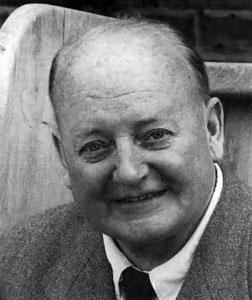A Quote by Darold Treffert
Savant syndrome, characteristically, consists of left hemisphere dysfunction coupled with right hemisphere emergence, and what you see in the savant are basically right brain skills.
Related Quotes
You begin by engaging the left hemisphere of the brain with the overall shape, the basic structure of the painting, and then eventually you engage with the colour, with the mood of the painting and then you are entering the activities of the right hemisphere - and it is in the right hemisphere that ideas of space are born, the realization that you are seeing space.
Savant syndrome is not a disorder in the same way as autism is a disorder or dementia is a disorder. Savant syndrome are some conditions that are superimposed and grafted on to some underlying disability. So savant syndrome is not a disease or disorder in and of itself. It is a collection of characteristics, or symptoms, or behaviors that have grafted on to the underlying disability.
Sacred play is anything that takes you into that right hemisphere of your brain. It turns out that this move away from left to the right hemisphere, that sense of expansiveness and everything, can be accomplished through unusual rhythmic action, or any action that requires so much attention away from words that you cannot think in words.
The left hemisphere is very interested in language; it communicates in words, it has a past, a present, and a future; it has a time component and it's all about details. The right hemisphere is more about the right now-right here experience where everything is an enormous collage of all the sensory systems flooding into our brains.
A savant, by definition, is somebody who has a disability and, along with that disability, has some remarkable ability. Prodigies and geniuses have the remarkable abilities that the savant shows, but they do not have a disability. So, by definition, a savant includes someone with a disability, and a prodigy or genius are people who have these remarkable skills but they do not have a disability.
When one part of the brain makes a choice, other parts can quickly invent a story to explain why. If you show the command "Walk" to the right hemisphere (the one without language), the patient will get up and start walking. If you stop him and ask why he's leaving, his left hemisphere, cooking up an answer, will say something like "I was going to get a drink of water."
The left hemisphere acts as an "interpreter," watching the actions and behaviors of the body and assigning a coherent narrative to these events. And the left hemisphere works this way even in normal, intact brains. Hidden programs drive actions, and the left hemisphere makes justifications. This idea of retrospective storytelling suggests that we come to know our own attitudes and emotions, at least partially, by inferring them from observations of our own behavior.
The ways in which acquired savants show up are usually the same ways that congenital, or non-acquired, savant syndrome shows up. They tend to show up in the same areas: music, art, math, visual, spatial skills, and calendar calculating, although calendar calculating probably isn't quite as prominent in that group. They tend to show up quite quickly, or sort of explode on the scene and they then tend to have an obsessive sort of forceful quality about them in the same way as savant skills. So they tend to show up in the same ways.
We consciously use only a small portion of our brain, but we're constantly performing complex operations in other areas even though we're unaware of it. Savants gain access to unconscious areas when the brain's bossy left hemisphere is muted. The left is in charge of much of our organized thought and decision-making and tends to suppress the right side, which generally rules creative activities.
When you read a book, you generate beta waves irrespective of the book's content. But if you look up from it, and start watching TV - it doesn't matter what the content of the program is - the beta waves disappear and you start processing alpha and theta waves. These are the same waves that you generate during meditation. Reading is primarily left hemisphere and watching television is primarily right hemisphere. Now how could that not have a major effect on our culture?





























